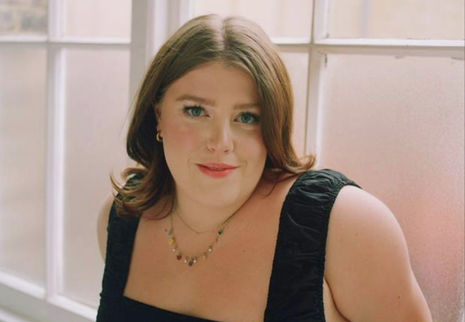Jemma Sbeg on the psychology of your 20s
Carissa Wong discusses vunerability and mental health with podcaster Jemma Sbeg

The Psychology of Your 20s began in the back of Jemma’s car during a tumultuous period in her life, and has since grown into one of the most popular podcasts for anyone navigating their 20s.
Emerging from a painful breakup while studying at the Australian National University, Jemma recalls feeling lost. “I didn’t really know what I was going to do with my life”. But she “was studying psychology, and there was so much research and so much science that could directly apply to what I was going through.”
Her innovative idea stemmed from recognising a gap in the self-help market, where much female-focused content is grounded in opinion, without any scientific basis. Jemma recalls having this feeling of: “if I don’t do this, someone else is going to, and I’m totally going to regret it.”
What makes her podcast stand out is her ability to ground her episodes in psychological research with a deeply personal touch. Reflecting candidly on episodes past, she admits featuring her ex-boyfriend as a guest was a “terrible decision” –neither relatable nor scientifically robust. Over time, she has learned to navigate the delicate balance of vulnerability, avoiding oversharing personal details while still fostering genuine connections. Nevertheless, she reflects on how the podcast has developed her attitude towards openness. Her entire 20s have been documented online, from sharing deeply personal moments like mental health crises and medical emergencies to candidly discussing breakups. She describes these experiences as not only cathartic, but hopefully that which can encourage listeners to embrace vulnerability. She recognises the delicate art of balancing vulnerability with discretion, “knowing who to trust” with one’s experiences.
For Jemma, podcasting is less about performance and more an instinctive act of self-exploration. “I’ve loved podcasts for probably as long as I’ve had a conscious brain. My mom used to play either the radio or podcasts for me when I was a kid.” It offers an immediacy that journaling lacks: “sometimes talking things through is more effective than journaling,” because in the moment, “you can’t always censor yourself… you are really just saying whatever comes to you in the moment”.
Podcasting is accessible, too. “To make an average podcast is really not that hard. You just need a microphone and software—pretty much anyone can do it.”
“I don’t think there is [an answer]. And I know that might depress some people, but there isn’t”
The creative impulse behind The Psychology of Your 20s was rooted in personal curiosity. “I knew it was a good idea that maybe other people would enjoy, but it was primarily an idea that I really liked for myself to have as my safekeeping, to have these episodes that I could look back on.” Whether or not many people tune in, the value lies in documenting and making sense of life’s twists in real-time – and perhaps offering others a chance to feel less alone along the way.
How, though, can we fix the mental health struggles that plague many young adults? Jemma is refreshingly candid in admitting, “I don’t think there is [an answer]. And I know that might depress some people, but there isn’t”. She frames mental health as something that may ebb and flow throughout life, yet never entirely disappear. For her, the mainstream desire to ‘cure’ mental health problems is reductionist, and misses the point entirely. Medications can be useful, but they aren’t a fix-all, especially not “if you don’t fix the things about society that are wrong… [including] accessibility to mental health care”.
However, this candid approach should not be interpreted as defeatist or pessimistic: Jemma insists that she is “super hopeful. I really think that people have the power to change their lives”. “The balance,” she says, “is about knowing what can, and can’t, be changed.” For listeners, her honesty opens the door to a realistic, but optimistic, way of looking at mental health: focusing on acceptance and self-agency, rather than chasing an elusive cure.
“I really think that people have the power to change their lives”
Listener feedback throughout her podcasting journey has heavily impacted the way Jemma talks and perceives life in her 20s, often in small but meaningful ways. She reflects on an episode inspired by a listener’s suggestion titled “It’s okay to change your mind,” expressing that “it’s actually a big factor in our 20s that people don’t really talk about.” For her, the podcast is “a continuous conversation where I’m constantly revising my thoughts and listening to people’s experiences.” What truly surprises her is its global reach- she receives emails and suggestions from across the globe. She continues to find inspiration in “the real power of the community” she has built.

How Thomas Godfrey is fighting anti-intellectualism
Finally, when asked what she would tell her 19-year-old self before heading into her 20s, Jemma offers straightforward, no-nonsense advice: “Stay single. You should be single – 100%.” She also advises, “Don’t worry so much about landing your dream job right after university. You’ll figure it out. If you get your dream job now, there’s not much to look forward to. It’s okay to start at the bottom and work your way up.”
 News / Colleges charge different rents for the same Castle Street accommodation2 March 2026
News / Colleges charge different rents for the same Castle Street accommodation2 March 2026 News / King’s hosts open iftar for Ramadan3 March 2026
News / King’s hosts open iftar for Ramadan3 March 2026 Theatre / Lunatics and leisure centres 4 March 2026
Theatre / Lunatics and leisure centres 4 March 2026 News / Angela Merkel among Cambridge honorary degree nominees27 February 2026
News / Angela Merkel among Cambridge honorary degree nominees27 February 2026 News / News in Brief: waterworks, wine woes, and workplace wins 1 March 2026
News / News in Brief: waterworks, wine woes, and workplace wins 1 March 2026







